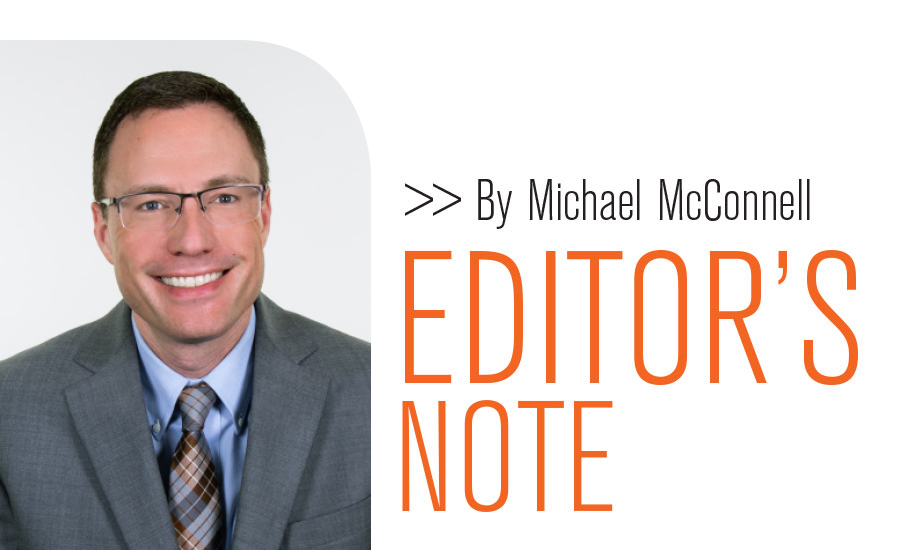It’s not often that the machinations of politicians in Washington, D.C., quickly find their way onto Snipsmag.com or the pages of this magazine.
But when President Donald Trump suddenly decided to slap a 25 percent tariff on imported steel and 10 percent on aluminum, it was real breaking news for HVAC and sheet metal, and we had stories posted daily on what the tariffs might mean to the industry.
Perhaps I shouldn’t call the president’s decision “sudden” because he has long been critical of countries such as China and trade policies toward the U.S. Trump had spoken in favor of tariffs long before he considered running for president.
But the move was unexpected by many. I recall attending a panel discussion at Fabtech 2016, held in Las Vegas just a week after Trump won his upset victory over former Secretary of State Hillary Clinton. Some on the panel said that the New York billionaire’s rhetoric on trade issues would likely soften once he entered the White House.
They were mistaken. Chris Kuehl, Ph.D., an economic analyst with the Fabricators and Manufacturers Association who took part in that 2016 Fabtech panel, said his group was shocked.
“Frankly, most analysts and observers never thought it would come to this,” Kuehl said. “There were so many reasons that imposing tariffs on imported steel was a bad idea. It instantly makes everything made of steel more expensive in the U.S. — cars, buildings, equipment, etc. It instantly pits the U.S. against its major allies as we get the vast majority of our steel from countries like Canada, Japan, South Korea, Mexico and other friendly states. It also guarantees a trade war as these nations are prepared to retaliate immediately.”
The president has since announced that Canada and Mexico will be exempt from any tariffs, at least for now.
Other industry groups, such as the Sheet Metal and Air-Conditioning Contractors’ National Association and the Metal Roofing Alliance, were more circumspect in their comments, waiting to see what the fallout, if any, would be.
I don’t pretend to have the insights of the economists on either side of this issue who have strong opinions on what this does or doesn’t mean for the U.S. economy. But contrary to the president’s statements, I can’t find a lot of cases where tariffs benefitted anyone outside the industries they’re designed to protect.
What do you think?
Letter
Equal pay requires equal work
Not a gal but felt the need to write regarding the column “Can the construction industry overcome stereotypes to become more welcoming to women?” (Editor’s Note, March). I’ve been retired from construction about three years now.
Our local worked to get women to enter apprenticeship programs. Very few bit at the opportunity. My experience as foreman was that the vast majority wanted the easier jobs. We had one in the local who pulled her own weight and did it well. She was no spring chicken, mid-50s, but she could work. The younger ones just did not seem to want to pull their weight, which as you know just didn’t fly. Most of the journeymen had no problem with a woman who would work and treated them well. From my experience, almost 40 years in construction, most wanted the same wage and equality but also wanted to be treated like a lady. Just doesn’t work that way.
Bud “Budman” Davis
Albany, New York











